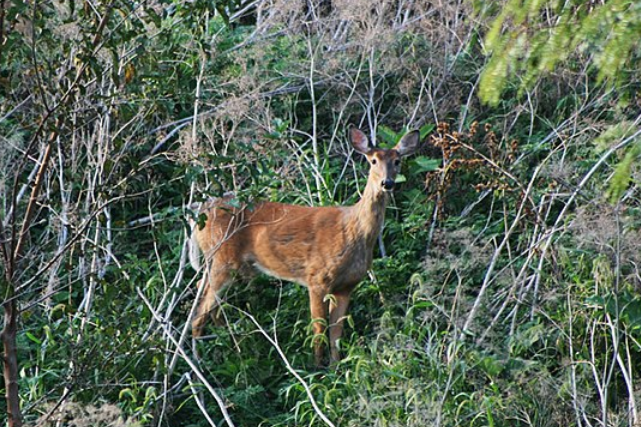Kootenay region site of first cases of chronic wasting disease in deer
Not only do Kootenay communities have street problems but there are also forest problems.
The Kootenay region is the site of the first cases of chronic wasting disease in B.C., found in two deer samples recently.
Although the disease is considered an infectious and fatal disease affecting species in the cervid family — deer, elk, moose and caribou — there evidence the disease can be transmitted to humans (there have been no cases of the disease in humans).
The two cases were identified south of Cranbrook, one from a harvested adult male mule deer, the other from an adult female white-tailed deer that was struck on the road, with diagnosis confirmed by the Canadian Food Inspection Agency reference laboratory on Jan. 31.
Within the initial response area — a 10-kilometre radius from confirmed case — the focus will be on confirming details of the situation and minimizing disease transmission and spread, with further directions expected to come in the next few weeks.
A surveillance and response plan is being led by a provincial wildlife veterinarian with support and input from the chronic wasting disease advisory committee and regional working groups, which include First Nations, stakeholders, experts on chronic wasting disease and other partners.
Moving ahead
To prevent any potential risk of transmission or illness, it is recommended people not eat meat or other parts of an animal infected with chronic wasting disease, according to the B.C. Wildlife Health Program.
Anyone who sees a deer, elk, moose or caribou exhibiting any symptoms of chronic wasting — such as weight loss, drooling, poor co-ordination, stumbling, or generally sick with no obvious reason — is asked to report it the to the 24/7 Report All Poachers and Polluters Line (1 877 952-7277) or the B.C. Wildlife Health Program.
For more information, visit the B.C. the Chronic Wasting Disease website: www.gov.bc.ca/chronicwastingdisease


























Comments